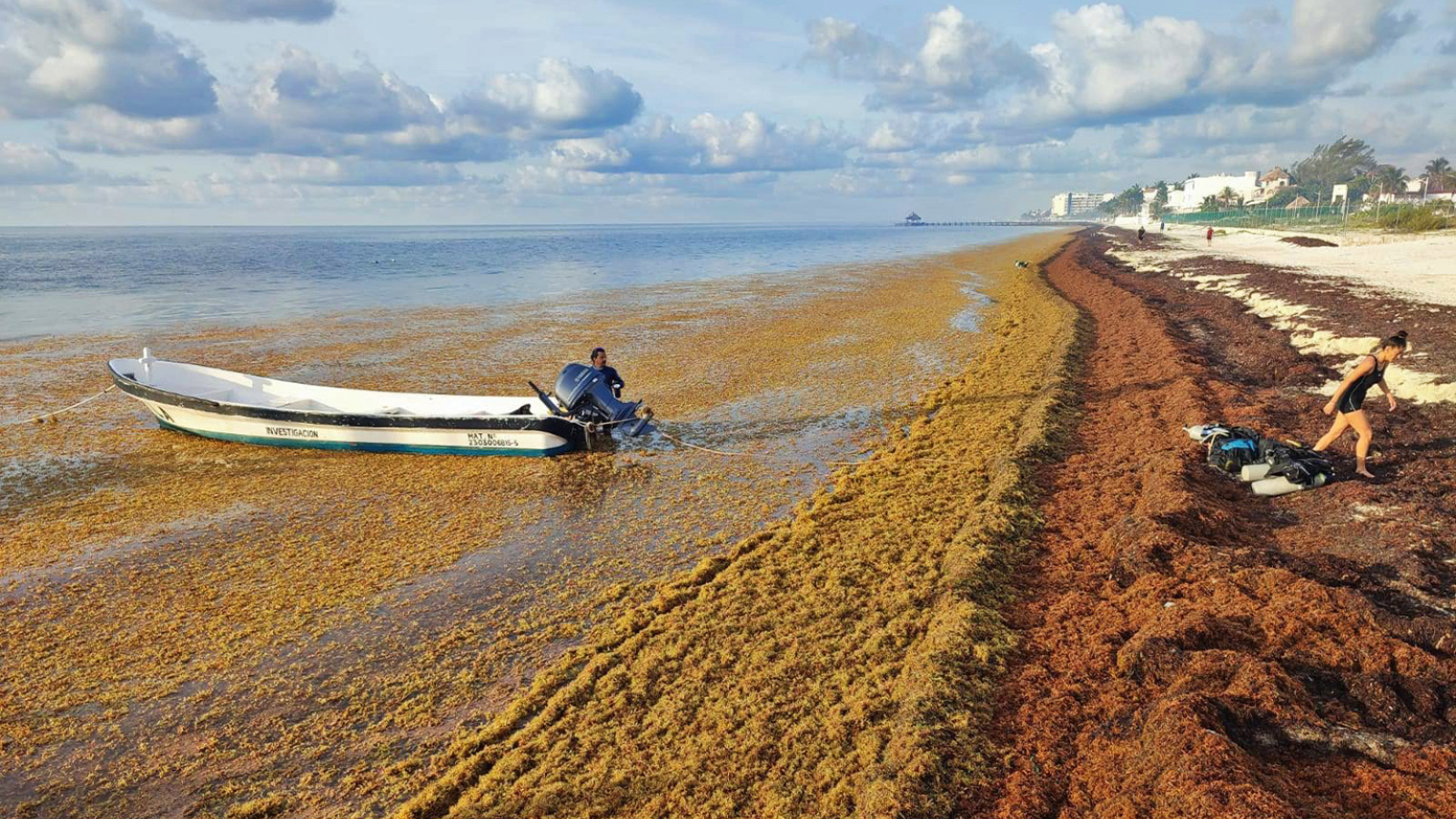
The Future of Climate Innovation: My Summer Story
This summer, I had the opportunity to join the Sea2Carbon team, a venture founded by INSEAD 24D alumni Utsav Oza and José Gomes. Sea2Carbon’s mission is clear and ambitious: harness the power of marine biomass to drive climate action, foster economic empowerment, and support environmental restoration.
At its core, Sea2Carbon is tackling a pressing ecological and economic challenge – excessive seaweed growth. Every year, massive blooms of sargassum wash up on shorelines across the globe, disrupting ecosystems (e.g. preventing baby turtles from leaving their nests), harming local economies, and releasing greenhouse gases as they decompose. Instead of letting this resource go to waste, Sea2Carbon has developed an innovative solution: a modular reactor technology that transforms invasive seaweed into sustainable outputs. These products include biostimulants for agriculture that improve soil health, bio-coal for steel production, and freshwater for local communities impacted by sargassum beachings.
By intercepting seaweed before it decomposes, the process not only prevents harmful GHG emissions but also generates value across multiple sectors. In doing so, Sea2Carbon positions itself at the intersection of climate innovation and circular economy, addressing the dual challenges of carbon reduction and sustainable industrial transformation.

Over the course of the internship, my work spanned across strategy and market intelligence, giving me the chance to contribute directly to the growth of the venture. I collaborated on the go-to-market strategy across key regions. This involved analysing macroeconomic trends, policy developments, and demand signals to identify where the technology could generate the greatest impact and scale most effectively.
Beyond strategy, I supported fundraising efforts by refining investor materials designed for institutional outreach. Together, these efforts helped sharpen Sea2Carbon’s growth roadmap and strengthen its engagement with investors, policymakers, and industry leaders.
Key takeaways from my internship
My time at Sea2Carbon left me with lessons that extend well beyond climate tech, shaping how I think about work, collaboration, and impact:
1. Being a part of a start-up brings a new perspective
This was my first experience working in a start-up, and it turned out to be an amazing journey. I discovered how much freedom and ownership you are given to shape projects, test ideas, and find your own approach. The fast-moving environment means priorities can shift quickly, but instead of being a drawback, this agility makes the work dynamic and engaging.
It encourages you to stay flexible, think creatively, and adapt with confidence. That sense of empowerment and the opportunity to contribute directly were among the most rewarding aspects of the internship.
2. Passionate founders are incredibly motivating
From the very first conversation with Utsav and José, I could sense their deep knowledge and passion. Working alongside founders who are so committed to their mission is contagious – their energy and drive spread quickly, making you want to give your best. It is rare to find work that is not only intellectually stimulating but also emotionally fulfilling, and that is exactly what this collaboration offered.
3. Seeing the direct impact of your work
Unlike in a large corporation, you can clearly see how your contributions move the needle. The analyses I conducted helped shape strategic decisions about future markets. That level of direct impact made me feel like an integral part of the team and created a strong sense of ownership and motivation.

4. The value of knowledge sharing
One of the highlights of the internship was the openness with which the co-founders shared their knowledge. Whether it was insights on climate tech, behind-the-scenes details of investor discussions, or accelerator programme meetings, they consistently made sure I was included. This gave me a unique 360° view of start-up life and allowed me to grasp not just the theory, but the lived reality of building an impact venture.
5. Sustainability is challenged, but very much alive
In today’s polarised world, the sustainability agenda often faces headwinds. Climate action has increasingly become a political wedge issue, with narratives that often portray it as a burden rather than an opportunity. Yet my time at Sea2Carbon reinforced a crucial lesson: climate risk is business risk, and the decomposition of invasive seaweed is a perfect example – if left unmanaged, it creates environmental and economic costs, but if harnessed, it generates value across agriculture, industry, and coastal resilience.
Sustainability is evolving into a space where practical, scalable solutions can attract funding, deliver tangible business benefits, and contribute to systemic change.
This summer turned out to be a very rewarding professional experience – being a part of Sea2Carbon, I quickly realised how energising it can be when the right elements are in place: founders with genuine passion, a culture that encourages entrepreneurship, and a mission that resonates deeply with your own values. My time with Sea2Carbon gave me the chance to contribute to a venture tackling one of the world’s pressing challenges in a creative and scalable way. More than that, it showed me how empowering it feels to be part of a small, dedicated team where every piece of work directly influences the path forward.
As I look back, I feel both grateful for the opportunity and inspired by the impact ventures like Sea2Carbon can have. The experience reinforced my conviction that innovation grounded in purpose is not just possible – it is essential for building a more sustainable future.
This internship experience was supported by the INSEAD Hoffmann Institute Impact Internship Stipend.




